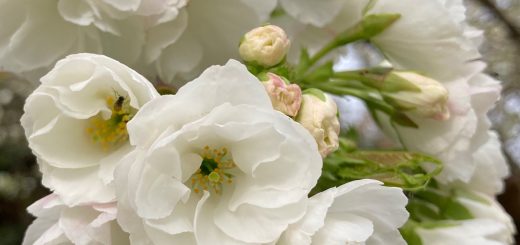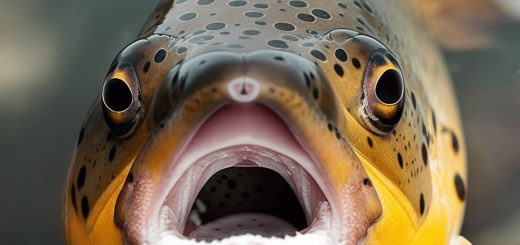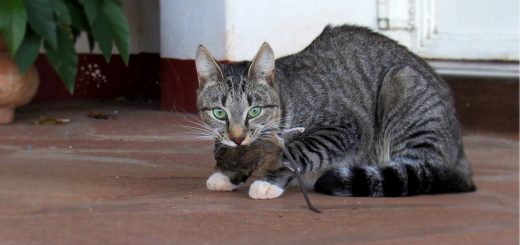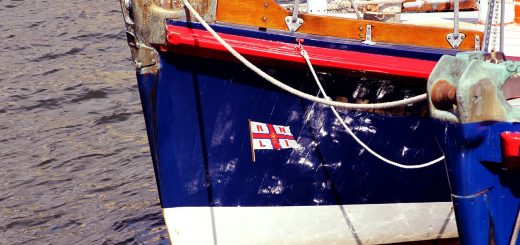Pembrokeshire Poet: Richard Wheeler

I won’t pretend to know anything about poetry, except that I know what I like. So when Richard Wheeler agreed to talk to us about his love of words,I was delighted.
Richard has known Pembrokeshire from childhood and, like so many people we talk to, came back again and again until the opportunity presented itself (a little over ten years ago) to make this his permanent home.
Desiring a better life/work balance was a motivation, and when it became possible to run his IT business from home, the dream was realised. Happily removed from the noise and bedlam of the South-East, he relishes the nourishment he experiences from the natural world, just by stepping out of one’s own door.
“At the back of our house near Newport there was a wild wood,” he tells me. “By planting a wider range of shrubs and small trees, we have created a wildlife garden alive with bees, birds, and butterflies.”
I ask Richard if he has particular places in Pembrokeshire that have won his heart.
“I really enjoy the ocean,”, he says,“but principally from the safety of dry land!” He cites favourite stretches of the Pembrokeshire coastline: Ceibwr, Strumble Head, Cwm-yr-Eglwys to Pwllgwaelod. “Ultimately, though, I’m really more of a woodland and fells person. The Gwaun Valley, the Preselis, Tycanol Wood are all places I love to walk and explore.”
It is clear that his love of the natural world is a constant inspiration for his poetry. Has he always written?
He nods. “My sister and I were lucky in that our parents read to us (Kipling, Betjeman, Keats, R.L. Stevenson, Laurie Lee etc) when we were very young and I’ve been a bookworm ever since. As a young kid I enjoyed writing simple, rhyming verse, limericks and the like.” He recalls a moment when aged around 12, he passed some poetry he had written to his father. His dad’s response before looking back at the TV was to say: “You didn’t write that.”
I wince. For a lot of young people that would be the end of their interest, but not Richard.
“I know you can be sunk by that,” he laughs. “But I saw it as a positive. My father didn’t think it could be my work.”

During his mid-teens, Richard says, he got a bit sidetracked, creatively. “I now look back at stuff from that time as amounting to little more than a rant – polemic. The opposite of the kind of subtlety that I really enjoy.”
He moved on from this to spend the next few years – (aside from the day job) songwriting. Music is another one of Richard’s loves.
“For all my love of ideas and mental exploration, it’s important to me that poetry is accessible. I’ve learnt to trust in my musical ear to now drive the poetry. The sound of words and the selection of words is therefore central to how I write. The result, I hope, is poetry that is thought-provoking and where the language lingers with the reader.”
How does he put a poem together?
“When I read other people’s poetry, I want a real sense of how the poet sees and relates to the world – together with the unique way they use words and language. Unsurprisingly, they go hand in hand. My own creativity can be led by either of these things. With Sea Glass for example, whilst reflecting on life overlooking the estuary in Newport, I arrived at the line, And there is a sense that the world creates itself from moment to moment, which was enough to raise the pen.
“Other times the music of the words, rather than observation and reflection, is the starting point, i.e. when abstract lines come to me fully formed. Hence in An Omen the lines In a year when the gooseberries were unresolved, the relied upon flesh…” which made me want to build a poem around this.
How long does it take to create a poem?
“Some poems come together in next to no time. For most, this is just a start, and I return to it over days and weeks. This gives time for the poem to gestate. It’s fun to see it take shape, to begin to have a life of its own. I guess this organic element is what’s exciting about any creativity.”
Does he have any published work we can buy?

Richard shakes his head. “I am not anti publishing per se, but for now it’s not what I’m motivated by. I feel it changes things. I have heard poets say that you only need 40 poems to publish a volume of poetry. Is that the right criterion? There’s already so much stuff out there.” He feels concerned that once one has the ambition to publish that this changes the relationship with the work. “It becomes a sort of deal. You write for other reasons.”
However, Richard is also aware of the question: does a poem exist if it hasn’t been shared? To that end he helps organise poetry events where poets are invited to read their work for the benefit of those of us who love to listen.
“When we share our poetry out loud with others, it gets to breathe and take on a different life – the life you hoped it could have when ‘on the dry page’. Which takes us back to trusting one’s ear.”
Unfortunately due to the current situation with Covid-19 all public events have had to be postponed.





















Great article – really interesting to hear from a poet.